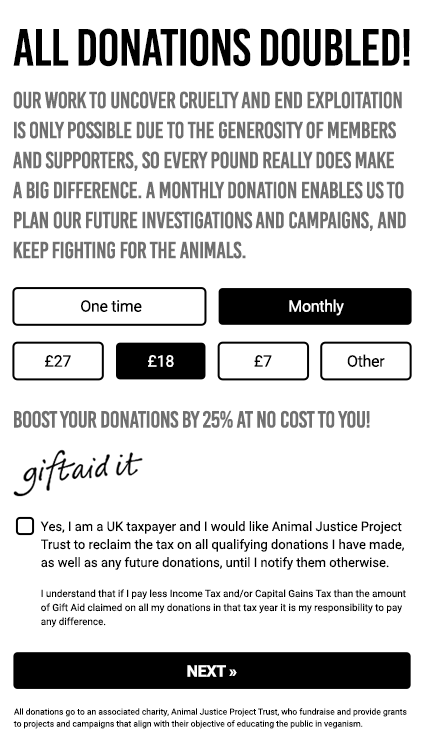.png)


In 2019, the UK exported around 17,000 calves to Spain, the majority coming from Northern Ireland. Unweaned calves — sometimes on trucks with around 300 others on three levels — were exported from the port and travelled on journeys of up to 50 hours. On these trucks, not all calves can access the milk dispensers, so many weeks-old calves are going 24-30 hours with no feed.
In May 2024, the live export of large animals for fattening and slaughter was banned in the UK after decades of campaigning. The Animal Welfare (Livestock Exports) Act 2024 received Royal Assent and this reflected a ban on the live exports of calves from the UK.
In contrast, unweaned calf exports from Ireland have grown in recent years, largely as a result of the uncontrolled expansion of the dairy industry that is producing an increasing number of male calves for which the sector has no outlet. Thousands of calves, at just 15 to 21 days, continue to be sent on long journeys from Ireland to 'veal' farms in Europe, where they are slaughtered at a few months old. Animal NGOs have documented calves held on trucks at ports for four to five hours, and then on ferries for a further 18 hours. Journey documents have revealed that calves may be on trucks for around 30 hours before being unloaded and fed at a resting stop at Cherbourg in France.

After a nine-month pregnancy, the same as humans, and giving birth, mother cows are separated from their calves. The emotional impacts are great and long-lasting. Male calves in particular are historically viewed as ‘waste products’ by the dairy industry, since they are unable to produce milk. Around 95,000 male calves were killed on farms — a waste product of the dairy industry. In recent years, the dairy and 'beef' industries have begun to merge; instead of killing calves a day or two after birth on farms, the ‘bull’ calves are taken off of farms to be reared for beef, often via markets, collection centres or dealers. The number of calves shot on farms has therefore decreased, but instead, they're being fattened and killed from 12 months old instead.
Tens of thousands of calves are also sent to the slaughterhouse. Our own investigative work has revealed thousands of week-old calves being rounded up by calf 'dealers' and sent to be killed. Their flesh, often classed as 'white meat' is usually exported across Europe or used in kebabs.



There are at least 50 markets trading calves in the UK. Over a million calves will be sold into the beef industry each year, with 50-60% of the British 'beef' herd being made up of dairy calves.
The rearing of beef is a relatively new concept, and it is increasingly commonplace due to public outrage at the shooting of male calves on-farm, and the subsequent pressure from retailers implementing no-shoot policies.


Yet for calves, sociality is important — for increased coping abilities, higher capacities for coping with change, and general well-being. Cow mothers who are separated from their calves show clear signs of distress and frustration. This shouldn’t be surprising. Cows form strong maternal bonds with their calves after just minutes of contact following birth. They recognise their own calves long after separation.

Young calves are subjected to painful mutilations such as disbudding procedures which produce behavioural and physiological pain responses. Dairy has many victims. For many consumers, drinking milk or eating cheese appears harmless. This is why the work of Animal Justice Project is so important. Our investigations and campaigns reveal the truth behind the labels and industry marketing. But we can’t do this without your support and action for animals. Eating plant-based alleviates the suffering, and means you can take action simply by choosing to put compassion on your plate.
.png)





© Copyright 2026 | All Rights Reserved